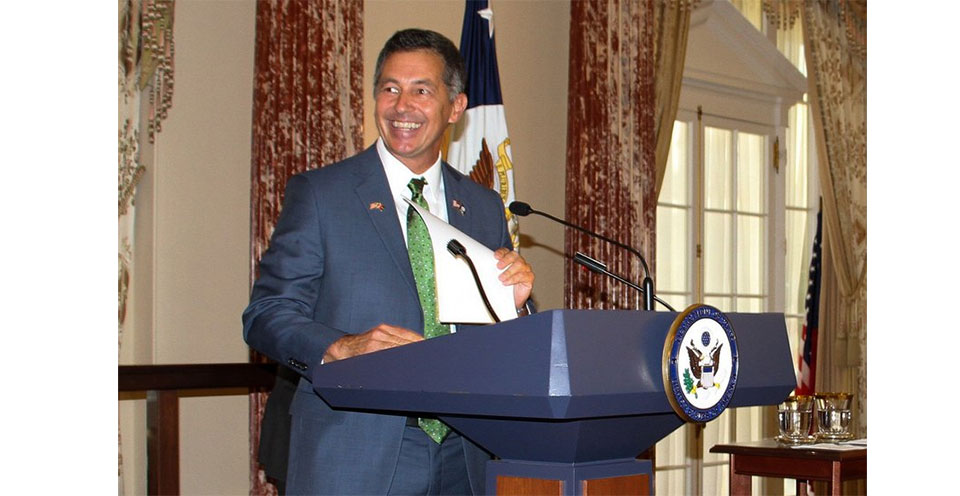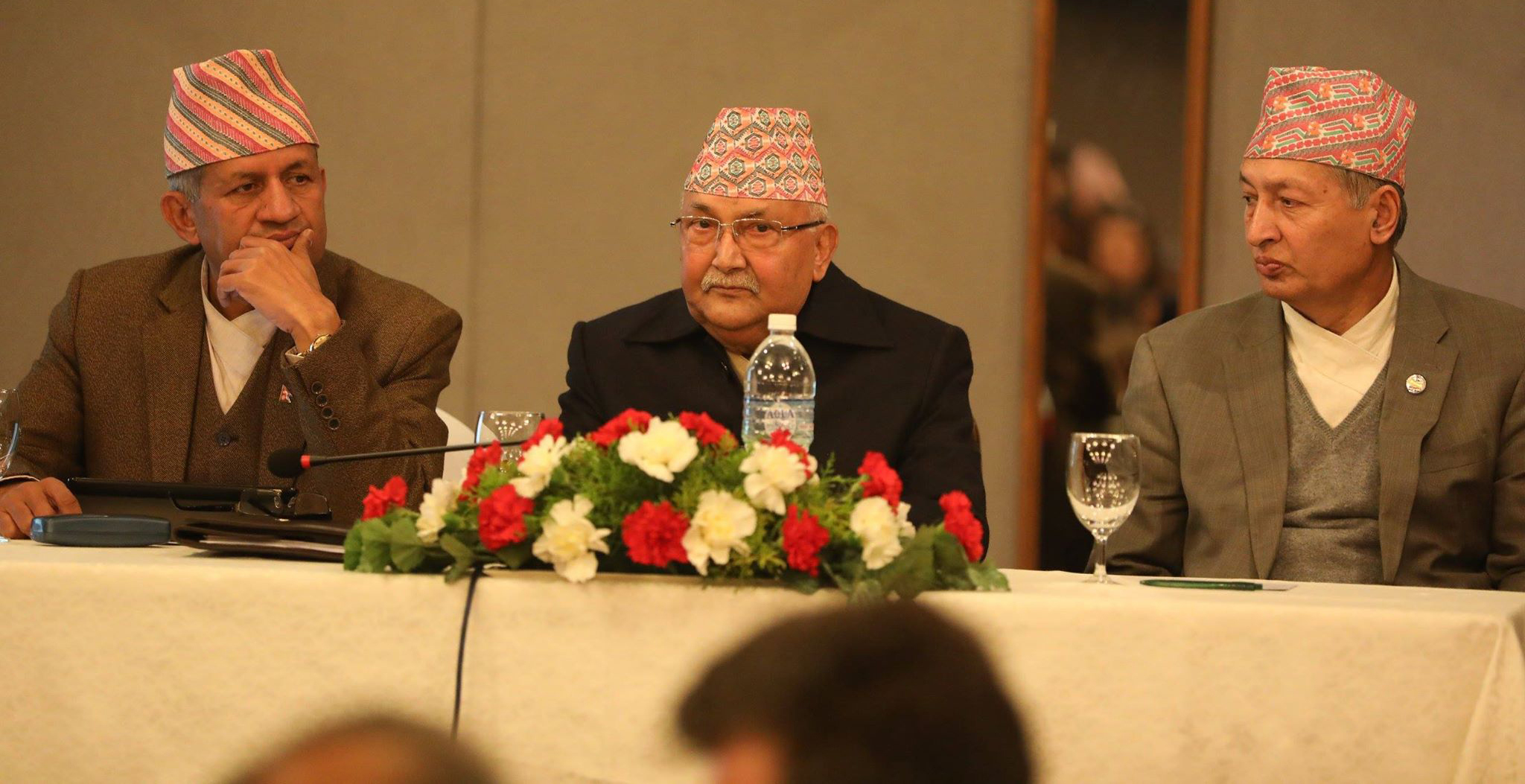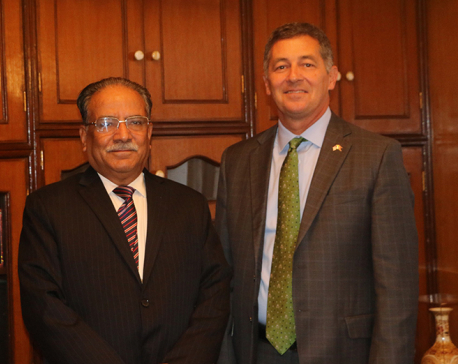
OR
US ambassador skips govt's diplomatic briefing
Published On: February 1, 2019 04:32 PM NPT

KATHMANDU, Feb 1: United States Ambassador to Nepal Randy Berry skipped a diplomatic briefing to the foreign diplomats based in Kathmandu hosted by the government on Friday.
The US envoy refrained from attending the diplomatic briefing few days after the United States sought Nepal government's official position on the ongoing Venezuelan crisis.
The US envoy's boycott has been interpreted as the US displeasure over Nepal's position on the ongoing Venezuelan crisis.
A source at the US Embassy in Kathmandu told Republica Online that the ambassador is in Kathmandu. However, the source denied commenting on why the ambassador preferred to shun the diplomatic briefing, which was attended by most of the head of diplomatic missions including India, China, Israel, and Russia.
However, Mike Gonzales, the deputy chief of mission of the US embassy, participated in the diplomatic briefing at the presence of Prime Minister KP Sharma Oli, Cabinet ministers and high-ranking government officials.

During the briefing, Foreign Minister Pradeep Kumar Gyawali briefed the diplomats on the government's priorities on foreign and economic policies as well ongoing preparations for the upcoming Nepal Investment Summit to be held in March in Kathmandu, according to Prime Minister's Foreign Relations Advisor Rajan Bhattarai.
Bhattarai said that the prime minister also briefly addressed the diplomats.
Meanwhile, US Embassy’s Spokesperson Andiea De Arment told Republica Online “The Embassy communicated our plans for American attendance at today’s briefing to the Foreign Ministry in advance of the event.”
Why the US is unhappy with Nepal?
Even as the government's official statement on the ongoing political crisis in Venezuela tried to distance itself from the ruling party chairman Pushpa Kamal Dahal's statement criticizing US and its allies, this has failed to impress the US officials in Kathmandu.
Diplomatic sources said US officials have taken the statement issued by Ministry of Foreign Affairs (MoFA) on the Venezuelan crisis as not essentially different in its content as compared to Dahal's previous statement, although “the language has been improved with fine editing.”
Shortly after Dahal issued the statement that criticized US and its allies for “intervention in the internal affairs of Bolivarian Republic of Venezuela with the intention of increasing the violence by dividing people and challenging democracy, sovereignty and peace,” US Embassy in Kathmandu had sought clarification with senior government officials if Dahal's statement was the official position of the government. “The government's statement only sparked confusion. It did not clarify anything,” said the sources familiar with the development.
The MoFA statement on Tuesday had stressed the need for resolving the Venezuelan crisis “free from external interference”—something US officials in Kathmandu have described as continuation of Dahal's earlier statement. “The statement fails to clear any air of confusions. Although the language has been changed, this contains no different intention,” added the sources.
Although the MoFA statement did not specifically mention the name of any countries, it emphasized the need for resolving the ongoing political crisis in Venezuela without “external interference.” “In line with its principled position, Nepal believes that internal political problems of a country need to be resolved within its constitutional parameters in a democratic manner, free from external interferences,” the MoFA statement said.
Venezuela has been witnessing massive protests after President Nicolas Maduro, who secured another six-year term last May in a disputed election, was sworn in two weeks ago. Political turmoil took a dramatic turn after the opposition leader and upper house chair Juan Guaido, who is leading massive street protests, declared himself the interim president, and was subsequently able to win recognition from the US and its allies.
The declaration by Guaido was in line with the Articles 333 and 350 of the Venezuelan Constitution. He made this declaration with full support of the upper house.
The US has maintained its position that the ongoing political crisis has now not just remained an internal affair, but a matter of grave international concern, given the huge humanitarian crisis in the country and gross violation of human rights due to misuse of state apparatus by the Maduro regime. Chairman Dahal's statement had earlier said that US recognition to opposition leader was “an unacceptable intrusion in internal affairs and an attempt of imperialist coup.” US officials have maintained that the statements issued by Dahal and the government fail to properly recognize the ground reality in Venezuela.
You May Like This

Mysterious disease killing dogs in Norway
HELSINKI, Sept 8: Norwegian authorities haven’t been able to detect the cause behind an unexplained disease that is estimated to... Read More...

Beyond statement
Dahal’s bid to support another parasitic and decaying communist regime is not based on heartfelt belief of global communist solidarity.... Read More...

FM Gyawali and US Envoy launched training series on English
KATHMANDU, Feb 5: Minister for Foreign Affairs, Pradeep Kumar Gyawali, and US Ambassador to Nepal, Randy Berry, have jointly launched a... Read More...











Just In
- Challenges Confronting the New Coalition
- NRB introduces cautiously flexible measures to address ongoing slowdown in various economic sectors
- Forced Covid-19 cremations: is it too late for redemption?
- NRB to provide collateral-free loans to foreign employment seekers
- NEB to publish Grade 12 results next week
- Body handover begins; Relatives remain dissatisfied with insurance, compensation amount
- NC defers its plan to join Koshi govt
- NRB to review microfinance loan interest rate







Leave A Comment